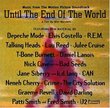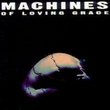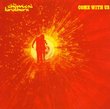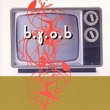| All Artists: Flux Title: Protoplasmic Members Wishing: 0 Total Copies: 0 Label: Release Original Release Date: 6/24/1997 Release Date: 6/24/1997 Genres: Alternative Rock, Pop, Rock Style: Indie & Lo-Fi Number of Discs: 1 SwapaCD Credits: 1 UPC: 781676695829 |
Search - Flux :: Protoplasmic
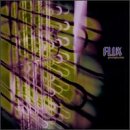 | Flux Protoplasmic Genres: Alternative Rock, Pop, Rock
|
Larger Image |
CD DetailsSimilarly Requested CDs
|
CD ReviewsAlternative to the alternative D. K. Malone | earth | 06/21/2000 (5 out of 5 stars) "James Plotkin, one of the underground music scene's few truly unsung heros, has been giving us music for about 10 years now. The thing I appreciate the most about his work is that it seems to have grown at the exact same pace as my tastes have, and in similar directions. When I first discovered Plotkin's band OLD, they were assaulting, heavy, and brutal. (see their CD 'Lo Flux Tube') A few years later, they were still very much in-your-face, but with a far more experimental "Let's see what this will sound like" edge. ('The Musical Dimensions Of Sleestak') The final OLD album was an extremely beautiful, almost hypnotic trance inducer. ('Formula') With Flux, Plotkin has continued in that vein. Protoplasmic contains very beatiful music, often sounding like what I can only describe as aural architecture. Like an awesome art deco skyscraper of sound, you can tell that these songs were meticulously planned and crafted, and yet they radiate the sheerest sense of beauty. Warm beauty, cold beauty, and everything in between. In layman's terms, Plotkin is essentially a guitarist who pieces together countless samples (usually of himself playing a guitar), manipulating and layering them in the studio and then completing them with rhythm tracks. In OLD, Plotkin partnered with Alan Dubin, who gave the songs his vocals. In Flux, Ruth Collins adds her voice to the mix, in what sounds like someone reciting poetry in a very flat monotone. Hey, it works. This album is almost 3 years old now. I've been dying to know what Plotkin is doing these days. All I know is that he's been doing the occasional ambient collaboration with seemingly anyone who'll have him." Still innovative and experimental, refined and beautiful D. K. Malone | 03/29/1999 (5 out of 5 stars) "James Plotkin continues to deliver sounds coming from an orginal point of view. Like groups such as Voivod and My Bloody Valentine, with Flux he has created a truly original work that pushes the boundries of contemporary music."
|

 Track Listings (8) - Disc #1
Track Listings (8) - Disc #1